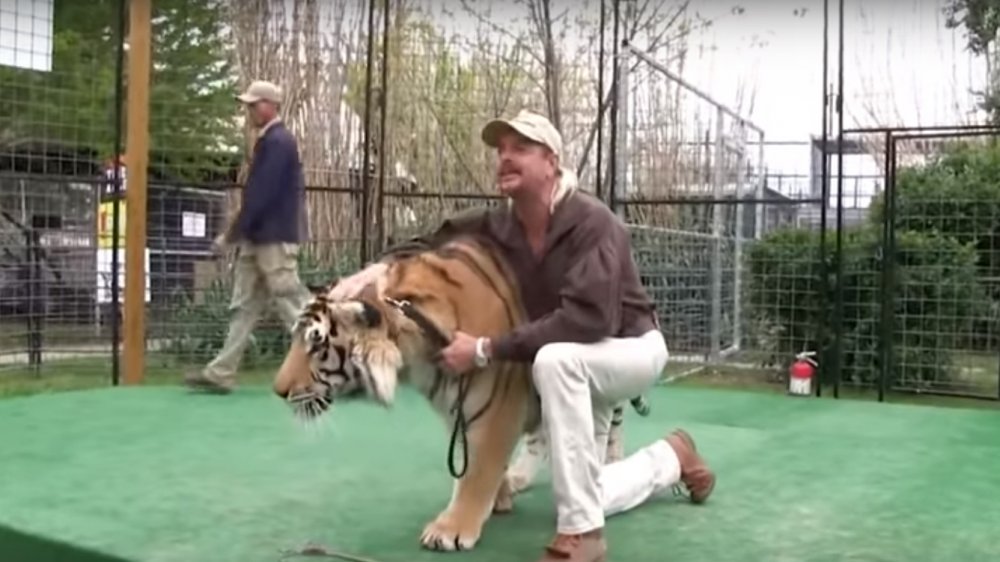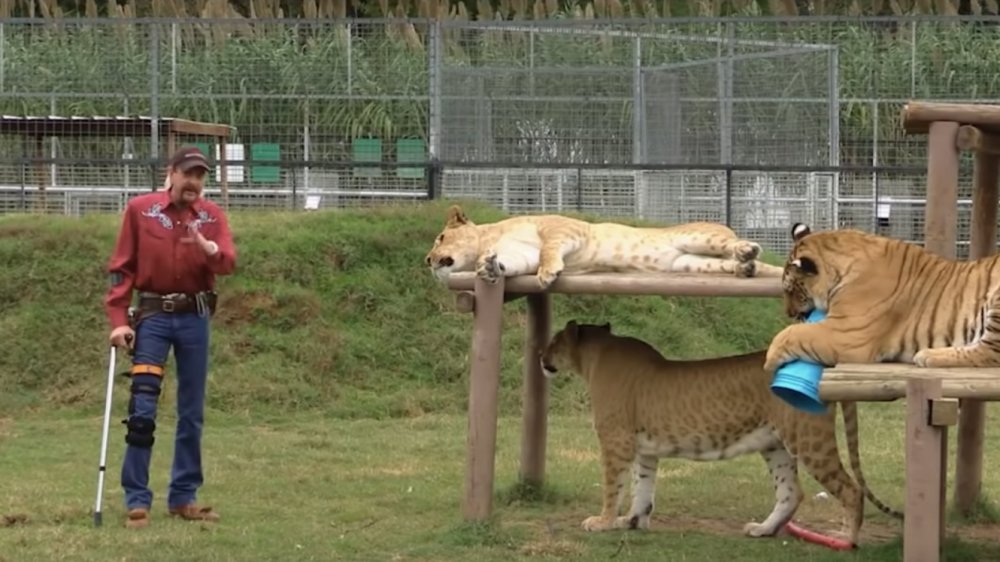What It's Like Inside The G.W. Zoo Today
If you've been sucked into the morass that is the world of Netflix's The Tiger King: Murder, Mayhem, and Madness — and even if you haven't, because it's kind of hard to not get any of it on you these days, regardless of your viewing habits — you know that the story involves, well, tigers and other big cats. Depending on your viewpoint, it's about letting the world celebrate and learn about amazing enormous apex predator killing machines (we're referencing the tigers, of course), or about exploiting and brutalizing a severely endangered species for personal gain. Also, murder, maybe. The mayhem and madness parts are probably a judgment call on the part of the viewer.
What with one thing leading to another, the subject of Tiger King, one self-styled Joe Exotic, a Kansas lad born Joseph Allen Schreibvogel (don't worry; it's pronounced just the way it's spelled) created a zoo/wild animal park in memory of his late brother, the Garold Wayne Exotic Animal Memorial Park in Oklahoma. That morphed into the Greater Wynnewood Exotic Animal Park.
Animal parks can be lonely places
We'll put this as gently as we can and simply say that — spoilers are comin' round the bend here — owner/founder Exotic/Schreibvogel is no longer part of the operation. Unlike, say, Brooklynn's Prospect Park Zoo, which started as a city zoo in 1890, the G.W. Zoo, as it is sometimes called, was a private operation. What happens when that private ownership, um, moves on?
Fear not, animal lovers. According to Women's Health, husband-and-wife team Jeff and Lauren Lowe are now running the operation, after Exotic/Schreibvogel put the zoo in their name, apparently in a bid to keep it out of the hands of his rival, Carole Baskin. The couple now has complete ownership of the park. And it's open. Sort of.
In an interview with Entertainment Weekly, series filmmaker Eric Goode reports that Lowe's business is "operating on fumes." Attendance is far from optimal, which Goode believes has been the case for a long time. As funds dry up, ultimately, it's "anyone's guess" what might happen to the animals, Goode said. He speculates that without a reliable cash flow, the owners will have to put down significant numbers of less valuable animals in order to feed the beasts that are more important. Apparently there are plans to relocate the zoo to a location near the Texas-Oklahoma border, perhaps even under a new name. Will mayhem result? Stay tuned.

